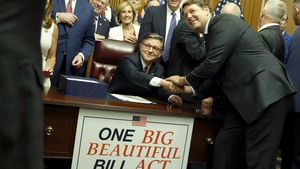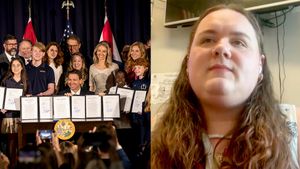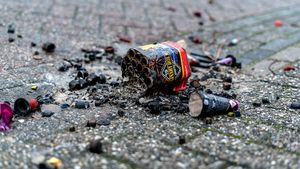A broad misunderstanding has resulted in over half of household recyclables ending up in the trash.
Even though 8 in 10 people in the U.S. believe that recycling is a valuable public service with a positive impact, research from The Recycling Partnership shows that most don’t fully understand how to do it properly.
About one-third of respondents to The Center for Sustainable Behavior & Impact's 2022 Consumer Labeling Research admitted that they “wish-cycled”, meaning that they have recycled items that they were unsure about with the hope that they would get recycled. Wish-cyclers aren't alone in their confusion:
- 60 percent of people failed to correctly identify what should and shouldn’t be recycled, even though they thought they knew.
- 50 percent of respondents believed that plastic bags can be recycled. They usually can’t, and plastic bags are actually dangerous for sorting machinery.
- Another 40 percent believed that food can be recycled in the bin, which is only partially correct; Food is recycled through composting, rather than in the bin.
- 30 percent were unsure about how much to clean recycle items, and they generally didn't know how to recycle items of more than one material.
The 2022 survey also found that 82 percent of people trusted package labels for recycling, and 78 percent looked at those labels to inform whether to recycle an item. Respondents incorrectly determined the recyclability of plastic bags, diapers, and other common household items, and most believed product label information without questioning it.
As a solution for product packaging confusion, The Recycling Partnership suggested QR codes that inform consumers on whether an object can be recycled in their community.
The Recycling Partnership also cited the “chasing arrows” symbol as a commonly-made association, though it doesn’t mean that something is recyclable in every community. When a number is in the symbol, it's actually used to indicate what kind of plastic is used, and whether it is recyclable will depend on what each community’s recycling program accepts.
For their newly-published 2023 Knowledge Report, The Recycling Partnership surveyed over 10,000 people on their recycling habits, and proposed ways that policymakers and companies can accelerate positive changes in consumers. The report highlights how organizations play an important role in shifting recycling habits, and that greater consumer understanding will promote greater change.


















































